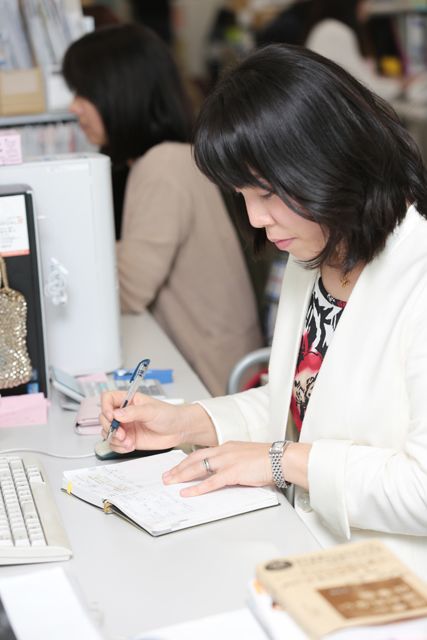
Habu Sachiko: Balancing Work and Family Is Not an Issue for Women Only
Society- English
- 日本語
- 简体字
- 繁體字
- Français
- Español
- العربية
- Русский
In Step with Working Mothers
INTERVIEWERNikkei Dual was launched in November 2013 to help working parents better balance their careers and home lives. How did the website come about?
HABU SACHIKOWhen I was pregnant with my first child around 12 years ago, the main source of maternity and childrearing information was still in print form, mostly books and magazines. I read and compared a great deal, but very little of the advice offered struck a chord with me. Nearly all of it was premised on the traditional image of the apron-clad mother who spends her days doing chores and looking after the kids.
Working mothers were hardly mentioned in the pages of these guides. Nothing on the shelves spoke to people like me who intended to continue their careers after having children. So there was obviously a need to fill this gap. Although I had been working at a print magazine, a web-based platform seemed a better way to connect directly with people trying to balance job and family.
The number of working couples is on the rise today, and women are more apt to remain in the workforce after childbirth. With both parents working, it’s getting harder for things like school PTAs to function according to the old model of the stay-at-home mom. The reality has changed, but this is what many publishers still push. This leads to feelings of guilt about not living up to social expectations and self-blame at putting work before family.
There are signs the situation is gradually improving, though. Until fairly recently the default setting for household appliance commercials was a wife in an apron cooking in the kitchen while her husband sits in the living room reading the newspaper. Nowadays, such stereotyping would result in serious social media backlash.
Instead, commercials are now apt to feature an aproned husband greeting a hungry and tired wife just home from the office. This changing image of the family is what I wanted to convey through Nikkei Dual.
We need to get away from the stereotype that childrearing is solely the duty of the mother. To enable women to better balance careers and family we must jettison established gender and social roles and foster greater understanding at home and the office. Nikkei Dual looks to help in this by disseminating relevant and up-to-date information to a broad spectrum of readers.

Breaking the Mold
INTERVIEWERHaving to care for a child or family member places serious constraints on a person’s ability to work. What are the biggest hurdles in overcoming this situation?
HABUCorporate Japan has long relied on a labor model that rewards extensive overtime. Companies assess employees by their ability to take on all manner of tasks handed to them, and employees express loyalty by staying on the job late into the night.
Japan’s shrinking workforce, however, has rendered this model untenable. The issue at hand now is how to build new systems of personnel evaluation and promote new workstyles that free workers from excessive overtime.
Under the old system, employees who were unable to work late due to family commitments were treated as damaged goods and considered less productive than their late-staying colleagues.
As a working mother, I chose to staff the Nikkei Dual editorial team with other working parents. We started from the ground up to develop new approaches to balance duties at home and the office and even introduced a whole new evaluation system. Having a supportive work environment enables the team to focus their energy into an array of original projects and articles.
If an employee suddenly needs to leave work at three to pick up a child at daycare, they can still submit a draft or upload an article from outside the office. We’ve had to enhance cybersecurity, of course, but having this flexibility promotes trust among staff and management and illustrates that productivity is not tied to long hours in the office. Nikkei Dual is proof that provided with the right work environment, employees with family commitments—given the enthusiasm they bring to their work—can be just as productive, or even more so, than those who’re always in the office.
I think Japan is gradually shifting toward a system where employees are assessed by their passion and productivity, not merely by the number of hours they spend at their desks.



